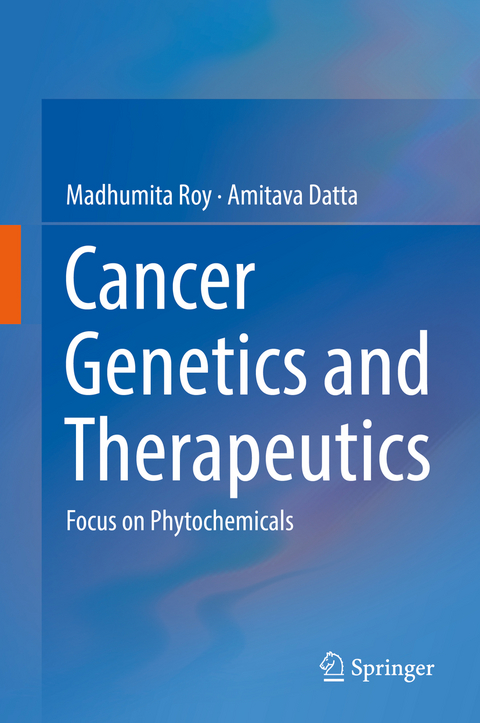
Cancer Genetics and Therapeutics
Springer Verlag, Singapore
978-981-13-9470-6 (ISBN)
Dr. Madhumita Roy completed her MSc in Physics at Calcutta University. She pursued her PhD studies at the Department of Crystallography and Molecular Biology, Saha Institute of Nuclear Physics, Kolkata and was awarded her PhD by the University of Calcutta in 1994. She is currently the Assistant Director and Head of the Department of Environmental Carcinogenesis and Toxicology, Chittaranjan National Cancer Institute, Kolkata. Her research focuses on cancer biology, particularly radiation biology, cytogenetics, cell biology, tumour cell apoptosis, cancer chemoprevention and environmental toxicology, including the arsenic disaster in West Bengal, India, identification of important tumor bio-markers, and chemo-enhancing efficacy of tumor cells by plant-derived molecules towards apoptosis by conventional chemotherapeutic drugs. She has published over 74 research papers in respected international journals and has attended more than 100 conferences and workshops in India andabroad. She is a life member of several societies, such as the Environment Mutagen Society of India (EMSI), Indian Association for Cancer Research (IACR), Electron Microscope Society of India, Indian Science Congress Association, All India Congress of Cytology & Genetics, and the Society of Nutraceuticals & Chronic Diseases. Dr. Amitava Datta completed his M.Tech and PhD in Computer Science at the Indian Institute of Technology, Madras. He pursued postdoctoral research at the Max Planck Institute for Computer Science and University of Freiburg, both in Germany. He is currently a professor at the Department of Computer Science and Software Engineering at the University of Western Australia. He was a Visiting Professor at the University of Freiburg and is currently a Visiting Professor at the University of Life Sciences, Warsaw, Poland, and South West University, China. His scientific interests include computational molecular biology, data mining and parallel and distributed computing, and his computational molecular biology research focuses on RNA structural biology and miRNA gene and target prediction, particularly in relation to cancer biology. He has jointly developed the DotKnot software tool for predicting RNA tertiary structures, including pseudoknots, which is used by researchers worldwide. He has published over 150 research papers in respected international journals and in international conference proceedings.
Chapter 1: Cancer: Types and hallmarks.- Chapter 2: Cancer: genetics and important pathways.- Chapter 3: Fundamentals of phytochemicals.- Chapter 4: Drugs and phytochemicals.- Chapter 5: Molecular mechanisms of phytochemical actions in cancer.- Chapter 6: Improvement of cancer therapy using phytochemicals.- Chapter 7: Pharmacogenomics and phytochemicals.- Chapter 8: Phytochemicals as bioenhancers.- Appendix I.- Appendix II.- Index.
| Erscheinungsdatum | 04.10.2019 |
|---|---|
| Zusatzinfo | 20 Illustrations, color; 27 Illustrations, black and white; XVI, 227 p. 47 illus., 20 illus. in color. |
| Verlagsort | Singapore |
| Sprache | englisch |
| Maße | 155 x 235 mm |
| Themenwelt | Medizin / Pharmazie ► Medizinische Fachgebiete ► Onkologie |
| Medizin / Pharmazie ► Medizinische Fachgebiete ► Pharmakologie / Pharmakotherapie | |
| Studium ► 2. Studienabschnitt (Klinik) ► Humangenetik | |
| Schlagworte | Cancer • cancer prevention • Cancer Therapy • Carcinogenesis • Oncology • Phytochemicals |
| ISBN-10 | 981-13-9470-9 / 9811394709 |
| ISBN-13 | 978-981-13-9470-6 / 9789811394706 |
| Zustand | Neuware |
| Informationen gemäß Produktsicherheitsverordnung (GPSR) | |
| Haben Sie eine Frage zum Produkt? |
aus dem Bereich


